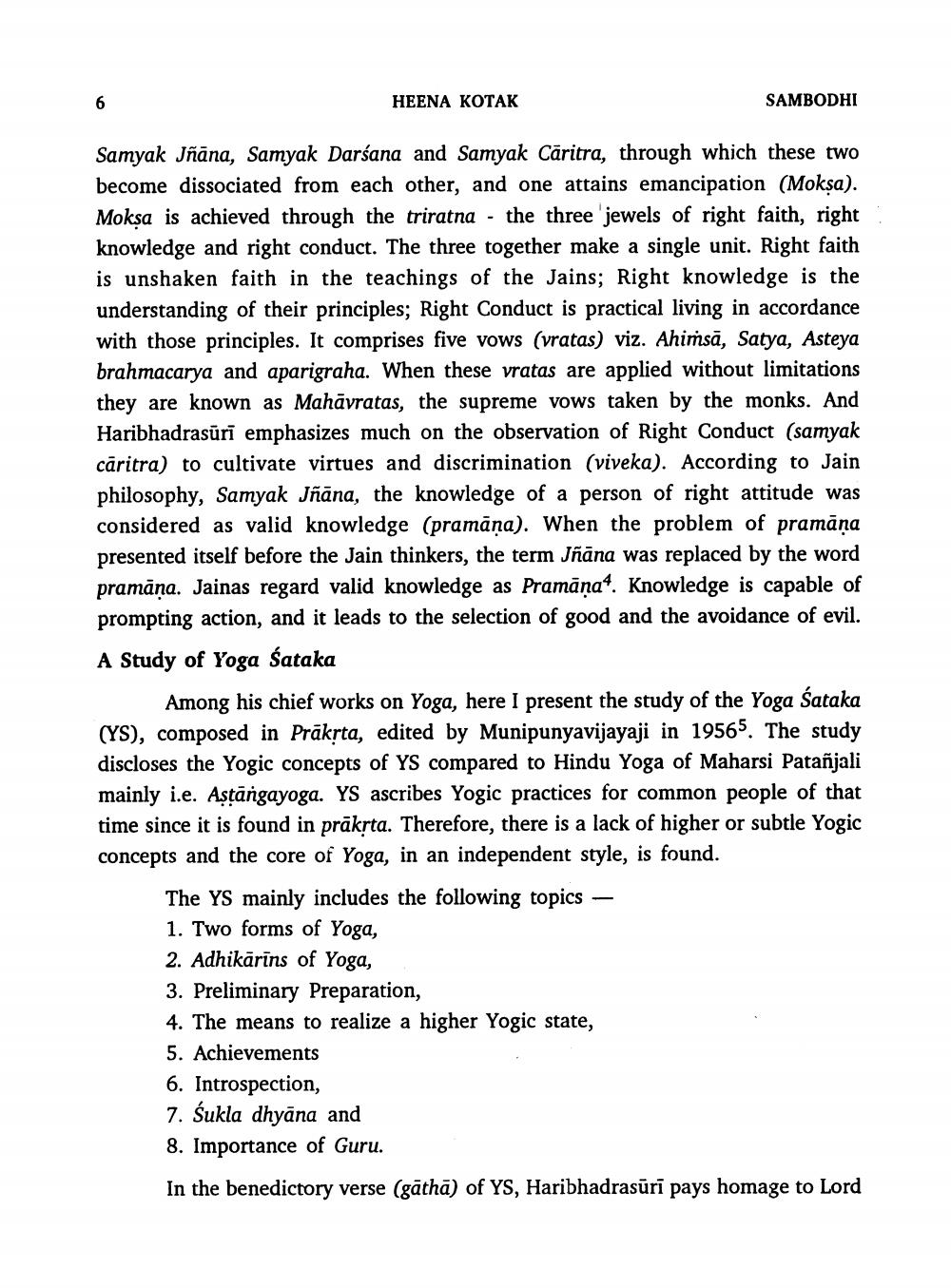________________
6
HEENA KOTAK
Samyak Jñana, Samyak Darśana and Samyak Caritra, through which these two become dissociated from each other, and one attains emancipation (Mokṣa). Mokṣa is achieved through the triratna the three jewels of right faith, right knowledge and right conduct. The three together make a single unit. Right faith is unshaken faith in the teachings of the Jains; Right knowledge is the understanding of their principles; Right Conduct is practical living in accordance with those principles. It comprises five vows (vratas) viz. Ahimsā, Satya, Asteya brahmacarya and aparigraha. When these vratas are applied without limitations they are known as Mahāvratas, the supreme vows taken by the monks. And Haribhadrasūrī emphasizes much on the observation of Right Conduct (samyak căritra) to cultivate virtues and discrimination (viveka). According to Jain philosophy, Samyak Jñana, the knowledge of a person of right attitude was considered as valid knowledge (pramāna). When the problem of pramāņa presented itself before the Jain thinkers, the term Jñāna was replaced by the word pramāņa. Jainas regard valid knowledge as Pramāņa1. Knowledge is capable of prompting action, and it leads to the selection of good and the avoidance of evil. A Study of Yoga Sataka
-
SAMBODHI
Among his chief works on Yoga, here I present the study of the Yoga Sataka (YS), composed in Prākṛta, edited by Munipunyavijayaji in 19565. The study discloses the Yogic concepts of YS compared to Hindu Yoga of Maharsi Patanjali mainly i.e. Aṣṭāngayoga. YS ascribes Yogic practices for common people of that time since it is found in prakṛta. Therefore, there is a lack of higher or subtle Yogic concepts and the core of Yoga, in an independent style, is found.
The YS mainly includes the following topics
1. Two forms of Yoga,
2. Adhikārīns of Yoga,
3. Preliminary Preparation,
4. The means to realize a higher Yogic state,
5. Achievements
6. Introspection,
7. Śukla dhyāna and
8. Importance of Guru.
In the benedictory verse (gāthā) of YS, Haribhadrasūrī pays homage to Lord




